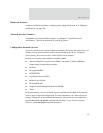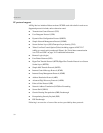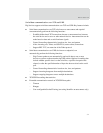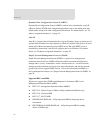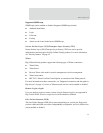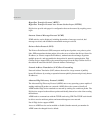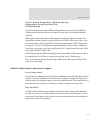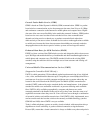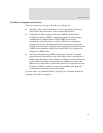
35
Introduction
Generic Routing Encapsulation (GRE) Passthrough
Encapsulating Security Payload (ESP)
ESP Passthrough
Generic Routing Encapsulation (GRE) and Encapsulating Security Payload (ESP) are
routing protocols that are used to route (tunnel) various types of information between
networks.
GRE applies to the encapsulation of IP datagrams tunnelled through the internet. The
encapsulation includes security, typically in the form of IPSec (IP security), and is most
commonly found in VPN (Virtual Private Network) implementation. RFC (Request For
Comment) 1701 and 1702 define these standards.Similarly, ESP is used in conjunction
with IPsec as a possible way of carrying IP packets for a Virtual Private Network (VPN)
setup. ESP is defined in RFC 2406.
In ESP Passthrough and GRE Passthrough, inbound IPsec ESP or GSP protocol traffic is
forwarded from to a VPN device connected to the Digi device’s Ethernet port.
Note: If an Auto-key Internet Key Exchange (IKE)-based VPN is used, UDP port 500
must also be forwarded.
Mobile/Cellular features and protocol support
Provisioning wizard
For Digi devices equipped with a Code-Division Multiple Access (CDMA)-based cellular
modem, a wizard is available in the web interface to properly configure the Digi device
with the required configuration used to access the mobile network. The wizard allows for
both automatic and manual provisioning for a variety of mobile service providers.
Digi SureLink™
All Digi Cellular Family products support the Digi SureLink™ feature. Digi SureLink
provides an “always-on” mobile network connection to ensure that a Digi device is in a
state where it can connect to the network. It does this through hardware reset thresholds
and periodic tests of the connection.





